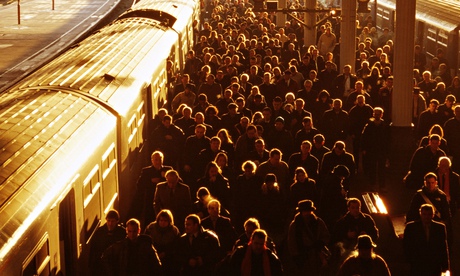Ten years ago, the 7.30am weekday train to London would arrive at Oxford station to find about 30 or 40 passengers on the platform. Now it picks up anything up to 200 people – a tangible sign of the umbilical cord that connects the two cities.
Soon the Oxford to London commute is to be augmented by a rare event: a new rail route. Chiltern Railways has started work on the first rail link between two major British cities for 100 years, building a new line and station connecting Bicester, Oxford and London Marylebone.
The new station – to be named Oxford Parkway – just off the A34 will be a boon to the north of the city and the county. You don't need to be Donald Trump to figure out what it will do to property prices.
As London house prices have risen, so too have Oxford's. But that doesn't tell anywhere near the whole story. The city has plenty of other attractions. Having one of the greatest universities in the world means it punches above its weight in terms of cultural capital. The Bodleian Library and the renovated Museum of Natural History are just two examples.
The social capital is rich as well. The classical music scene is staggering in its output, matched by few other cities in Europe. And Oxford's restaurants are underrated: the excellent Jacobs Inn in Wolvercote and the Turl Street Kitchen – a localvore delight in the city centre – attract locals rather than tourists.
Yet Oxford's status as least affordable city in the country is testament to a lack of opportunity. The city's major employers are the universities, the NHS, the council and BMW, none of which are renowned for extravagant wages. The rising number of commuters is just as likely to include Oxford residents finding work elsewhere as refugees from the capital.
Potential London escapees will probably be put off by the cost of commuting, as an annual season ticket costs about £5,000, and the knowledge that state schools in London are better, on the whole, although Oxford has a stellar independent sector thanks to the likes of Oxford High School for Girls and Magdalen College School.
In truth, Oxford has not been a cheap place to buy a house for decades, for the same reason as in many parts of southern England: there's nowhere to build. Two floods this winter have underlined why Oxford needs its rolling floodplains to the west and south, while the universities and even BMW's giant Cowley plant hem in the city elsewhere. Aesthetics and heritage rule out building high-rises. That leaves house prices to take the strain on demand. As the city can't rise, they do.


